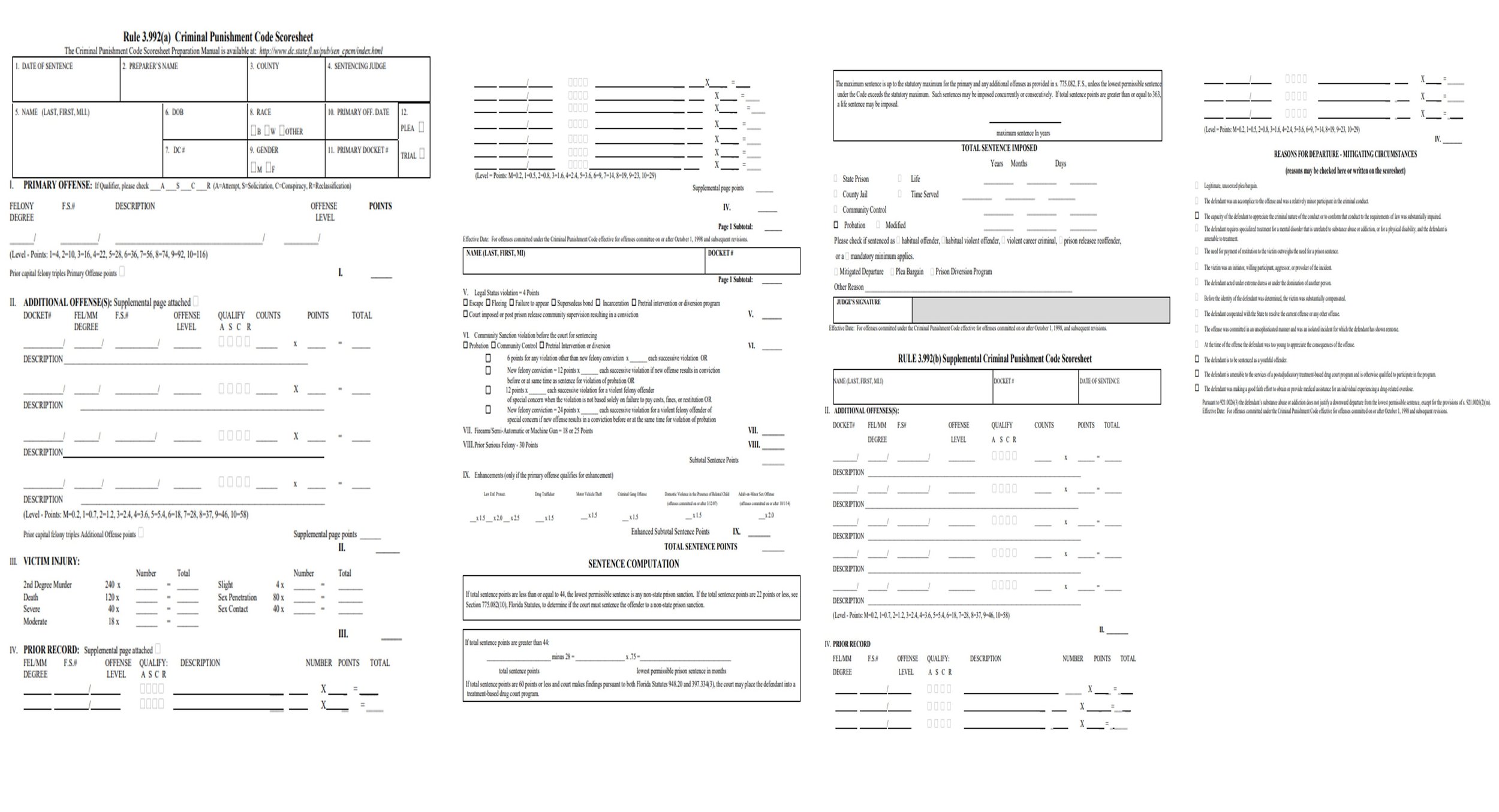
Florida Sentencing Guidelines
The Florida Sentencing Guidelines apply to anyone charged with an adult felony in Florida. The Guidelines combine several different factors, such as one’s current charge[s] and prior criminal history, to proscribe a “lowest permissible sentence” to the sentencing judge. In many cases, the Guidelines limit the sentencing judge’s ability to sentence the person to jail or probation. If a person accumulates more than 44 points under this calculation system, that person begins to “score” a prison sentence, which is a sentence of more than 12 months incarceration. However, at 44 points or under, the sentencing judge is able to sentence the person to a county jail sentence and/or probation, provided that there are no other restrictions on the judge, such as a mandatory minimum.
In many instances, the judge can sentence a person below the “lowest permissible sentence” under the Guidelines. This can only happen if Defense can establish that there is at least one basis that could justify a “departure” AND convinces the judge to impose the sentence the Defense is proposing.
The Florida Sentencing Guidelines calculate the following factors in determining a person’s “lowest permissible sentence:”
Primary (Most Serious) Current Offense
Additional Offenses
Injuries to Victim
Prior Criminal History
Legal Status at time of Offense(s)
Probation/Community Control Violations
Point Multipliers for specified circumstances




